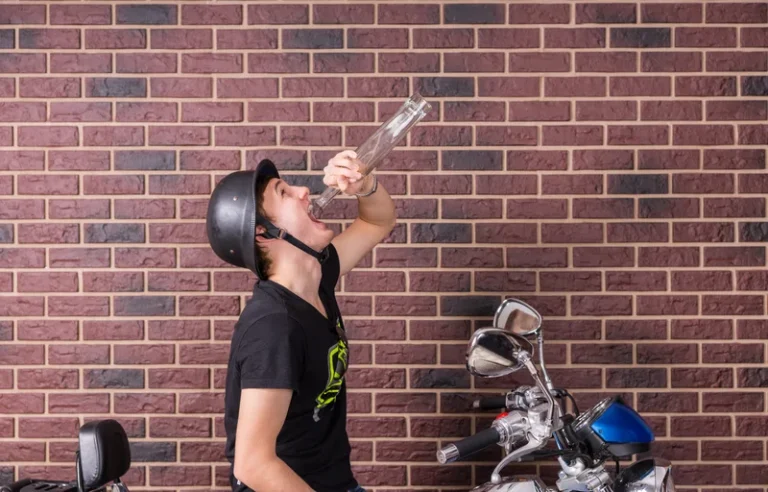
Many people believe that the body craving sugar after addiction is simply a natural response to the sugar content in alcohol, but there’s more to the story. They start with the brain and, in the case of a recovering addict, can be a sign of addictive behaviors. Once you quit drinking, your brain knows that it can receive the https://ecosoberhouse.com/article/does-alcohol-dehydrate-you/ same dopamine rush you felt with alcohol through sweets, as they affect some of the same neural pathways alcohol does. Alcohol disrupts metabolism, normal hunger/fullness cues, and can produce massive blood sugar swings. These fluctuations in blood sugars can cause cravings for sweets or other high carbohydrate foods.
- In conclusion, the interplay of neurological, physiological, and biochemical factors can help explain why alcoholics may experience intense sugar cravings.
- If you or a loved one is struggling with alcohol use or you believe you’ve developed a sugar addiction in response to sobriety, support is available.
- While it is tempting to indulge in sugary treats during this time, it is important for individuals in recovery to maintain a healthy diet.
- By implementing these strategies, individuals can support their physical and emotional health while working towards a successful and sustainable recovery journey.
Early Signs of Alcoholism in a Loved One

By addressing both the psychological and physiological aspects, recovering alcoholics can find healthier ways to cope with their emotions and nourish their bodies. Dopamine, a chemical messenger in the brain, plays a crucial role in how we perceive pleasure. It is released in response to rewarding experiences, including the consumption of alcohol or sugar.

Dangerous Opiate Abuse Side Effects
Consult with a medical professional for more information on treatment options you can try. However, you’re still dealing with an addiction that can cause health problems in the long term. Dopamine is a neurotransmitter made in the brain and is released in response to a reward or pleasurable experience. Sugar tastes great, and eating or drinking it is rewarding since it causes dopamine release. Alcohol is naturally obtained by fermenting sugar, which is why alcohol and sugar trigger similar reactions in the brain.
- Consuming sugar can assist in managing cravings and preventing relapse for recovering alcoholics [3].
- By building a strong support system that addresses both alcoholism and sugar addiction, individuals in recovery can increase their chances of success while maintaining a balanced lifestyle.
- Unravel the connection between alcohol and violence, from domestic abuse to impulsivity.
- Unveiling video game addiction statistics & facts – uncover the prevalence, psychological impact, and global insights.
Relationship Between Alcohol and Sugar Cravings
A comprehensive approach to addiction recovery should therefore incorporate strategies to manage both alcohol and sugar cravings. In addition to nourishing the body with whole foods, finding balance and practicing mindful eating can help individuals in recovery manage sugar cravings more effectively. Mindful eating involves paying attention to the body’s hunger and fullness cues and being present in the moment while consuming food.
Navigating The Effects Of Alcohol Abuse On Families
“Do I have a hangover or alcohol poisoning?” Unravel the difference and know when to seek help. Discover what is sober living, its benefits, rules, and the why do alcoholics crave sugar support you can expect on the path to recovery. Discover if a chemical imbalance causes anxiety and explore the latest research on anxiety treatments.
Strategies for Managing Sugar Cravings During Alcohol Recovery
Many people turn to alcohol as a way to cope with negative emotions or to enhance positive ones. However, when alcohol consumption is reduced or eliminated, these individuals may experience a void in emotional regulation. We hope you’ve found our article on why some individuals experience sugar cravings during alcohol withdrawal.
As individuals navigate their recovery journey, it’s important to remember that nutrition plays a key role in supporting both physical and mental health. Understanding why alcoholics crave sugar and implementing strategies to manage these cravings can be a significant step towards successful recovery. Eating a whole foods plant-based diet can help stabilize blood sugar levels, reduce cravings for sugar, and address both sugar and alcohol cravings in recovery. This approach to nutrition can support a more balanced mood and overall better well-being during the recovery process.
The 5 Levels of Care in Rehab

Understanding these factors can help individuals in recovery manage their sugar cravings effectively. By addressing the underlying causes and adopting healthy coping strategies, individuals can work towards a balanced and sustainable approach to their nutrition and overall well-being. During the recovery process, as alcohol is eliminated from the body, the sudden drop in blood sugar levels can trigger cravings for sugar. This is because the body craves a quick source of energy to compensate for the low blood sugar levels. Turning to sugar-rich foods or beverages provides a rapid influx of glucose, temporarily satisfying the craving.

Disturbing Adult Addiction Statistics & Facts
Alcohol addiction can have significant effects on an individual’s nutrition, often leading to malnourishment and deficiencies in both macro and micro-nutrients. This can result in individuals being overweight or underweight due to years of poor nutrition from alcohol consumption. As such, a balanced diet is essential in aiding recovery and restoring physical health. Maintaining a healthy weight is crucial, not just for aesthetic reasons, but also for overall health and well-being. Regular physical activity can help regulate blood sugar levels, reduce stress, improve mood, and strengthen the immune system, all of which are important for individuals in recovery. Additionally, intermittent sugar intake alters dopamine and opioid receptor binding and mRNA expression in the brain [2].

